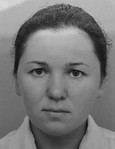The educational focus of physical training in the context of cadets' social and professional development
Keywords:
a military educational institution, cadets, social skill, pedagogical means, pedagogical activity, social interactionAbstract
Objective of the study was to support the educational focus of physical training in the context of the social and professional development of cadets.
Results and conclusions. The examination of scholarly research and educational practice in the realm of physical education within the context of higher education reveals that a variety of training programs and social engineering initiatives can serve as potent psychological and pedagogical instruments for fostering social communication abilities. These training programs are designed to enhance cadets' social communication and interaction skills within the framework of the physical education curriculum. They involve the demonstration and repetition of exercises to develop physical attributes. Additionally, they encompass a variety of search, project, and creative tasks aimed at discovering innovative approaches to increase physical activity. Furthermore, they encompass a range of situations that simulate interactions in professional settings, particularly in extreme circumstances where it is crucial to make joint decisions based on a specific level of physical fitness and personal and communicative abilities. These situations also include competitive game elements. Another method is social engineering, which involves creating future scenarios through the application of collaborative techniques.
References
Baranova V.A., Bocharova V.G., Plotkin M.M., Rozhkov M.I. Sotsialnoye vospitaniye kak teoreticheskiy kontsept i atribut sotsialno-pedagogicheskoy praktiki. Monograph. Moscow: Sovremennoye obrazovaniye publ., 2017. 195 p.
Burikov A.V. Teoreticheskiye aspekty organizatsii fizicheskoy podgotovki voyennosluzhashchikh. Obzor pedagogicheskikh issledovaniy. 2020. Vol. 2. No. 4. pp. 43-48.
Vasin V.N., Burikov A.V., Gorokhov A.V. Rezultaty pedagogicheskogo eksperimenta po sovershenstvovaniyu urovnya fizicheskoy podgotovlennosti voyennosluzhashchikh. Sovremennyy uchenyy. 2020. No. 2. pp. 191-195.
Grishinov V.P., Skripachev S.A., Yakunin N.I. Mezhlichnostnyye otnosheniya kursantov voyenno-uchebnogo zavedeniya. Uchenyye zapiski universiteta im. P.F. Lesgafta. 2017. No. 12 (154). pp. 67-71.
Igonin E.A., Ogorodnik S.I. Psikhologo-pedagogicheskoye obespecheniye optimizatsii mezhlichnostnogo vzaimodeystviya v studencheskoy gruppe. Elektronnyy nauchno-prakticheskiy zhurnal «Kultura i obrazovaniye». 2015. No. 2 (18). 15 p.
Lysenko Yu.N. Optimizatsiya psikhologicheskikh sostoyaniy kursantov pogranichnogo instituta FSB Rossii i yeye vliyaniye na produktivnost uchebno-pedagogicheskogo vzaimodeystviya. Teoriya i praktika psikhologo-sotsialnoy raboty v sovremennom obshchestve. Proceedings of the IV International correspondence scientific-practical conference, March 25, 2016. Arzamas. 2016. pp. 97-100.

Additional Files
Published
How to Cite
Issue
Section
License
Copyright (c) 2025 Theory and Practice of Physical Culture

This work is licensed under a Creative Commons Attribution 4.0 International License.
